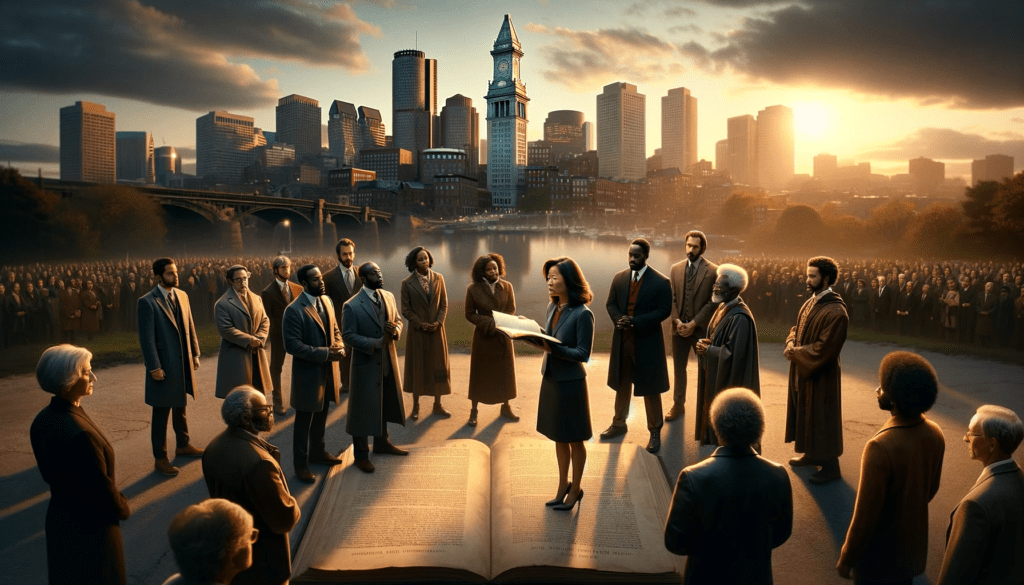
By Darius Spearman (africanelements)
Support African Elements at patreon.com/africanelements and hear recent news in a single playlist, plus get early access to ad-free video content.
Boston Mayor Michelle Wu recently announced the formation of two research teams to investigate the city’s role in the transatlantic slave trade and subsequent discrimination against its Black community. This initiative represents a major commitment to exploring reparations. The teams, comprised of distinguished academics and history experts, will delve into two distinct periods: 1620-1940 and 1940-present. Their findings will guide the city’s Reparations Task Force in devising strategies to compensate for economic losses caused by slavery and racial bias.
Margaret Burnham, a former judge and current head of the Civil Rights and Restorative Justice Project at Northeastern University, leads the post-1940 research team. This group includes notable figures like Dr. Deborah Jackson, Dr. Ted Landsmark, community leader Donna Bivens, and Richard O’Bryant. They will focus on Boston’s policies and engagement with racial issues from 1940 onwards.
The pre-1940 research team, tasked with studying the era from 1620 to 1940, features scholars from Tufts University, such as Dr. Kerri Greenidge, Dr. Kendra Field, and Kyera Singleton. They will examine the deeper historical context of slavery and racial discrimination in Boston.
Joseph D. Feaster Jr., the chair of the Reparations Task Force, emphasized the significance of basing reparations on factual history.
“As with anything, when you’re going to be trying to establish that there was a pattern in practice which had a dilatory effect upon a population, you have to deal with facts,” he stated.
This approach ensures that the recommendations for reparative justice are grounded in a thorough understanding of the city’s past.
“Boston’s efforts to confront and rectify its past through this research initiative signify a meaningful step towards acknowledging and addressing the long-standing impacts of slavery and systemic discrimination,” said Mayor Wu.
With a budget of $500,000, the city anticipates the teams will present their comprehensive report within a year. This report will play a crucial role in shaping the task force’s recommendations for addressing the historic injustices faced by Boston’s Black community.
About the author:
Darius Spearman is a Professor of Black Studies at San Diego City College, where he has been pursuing his love of teaching since 2007. He is the author of several books, including Between The Color Lines: A History of African Americans on the California Frontier Through 1890. You can visit Darius online at africanelements.org
